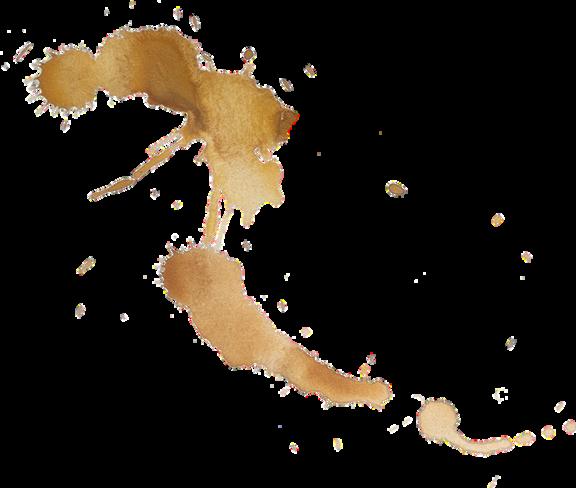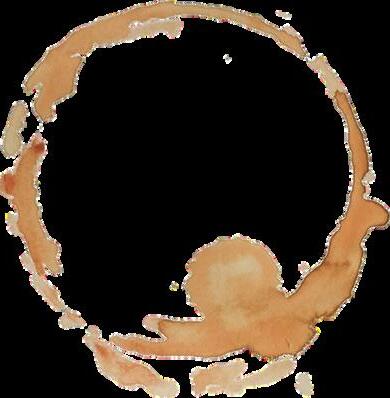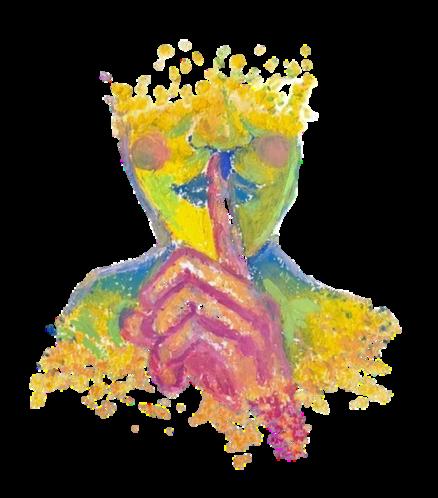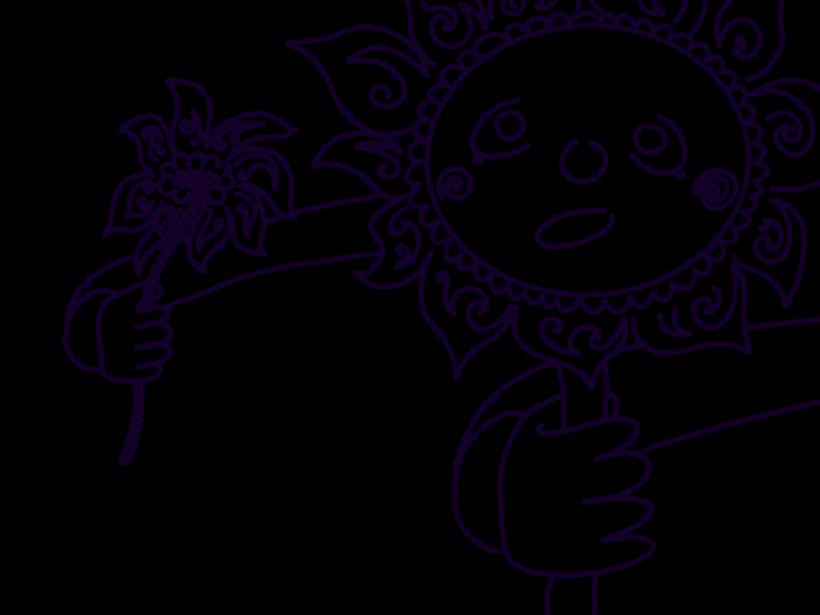AnAAPI Youth Perspective onMental Health








Hi everyone!
My name is Sia Arya, and I'm a first-generation Indian American from Dallas, Texas. This project is in partnership with Asian Texans for Justice through their Civic Engagement Fellowship. My project involves creating an artistic and educational zine that explores mental health within the AAPI community
The goal of this project is to destigmatize mental health and spark conversations! I encourage everyone to embrace the discomfort of difficult discussions and to confront their internalized stigma I'm just beginning to untangle my own predispositions, but this journey has already connected me with so many wonderful people, organizations, and insights
Thank you to everyone who helped make this project possible, and to all the readers for supporting the destigmatization of mental health. I hope you learn something new and enjoy the art I’ve designed for y’all
For more information about Asian Texans for Justice check out the website below: https://www.asiantexansforjustice.org/
Happy reading!
With love, Sia


Texashasthesecond-highest percentageofadultswitha mentalillnesswhoareuninsured (21.4 %)


Overhalfofadultswith mentalillnessinTexas donotreceiveany treatmentatall (62.3 %)


ee k an

(31.5 %) lts ve h ot octor t arethree toseek icesthan ans


“I'vefoundthatexpressingmental healthproblemsorsharing difficultieswithmentalhealthcan bedifficultinAsianfamilies.”
A lot of the time when you are younger, your problems are often viewed as inconsequential/not worth worrying about and that creates a standard of not expressing your problems until they escalate into a far more severe problem
I have seen how body image problems can be created through the comments and expectations fronted by relatives and since expressing issue with those comments is looked as overreacting, often people end up just bottling that feeling until it contributes to a genuine issue with body image and confidence in ones body
I think cultural expectations also play a large part in creating these struggles as relatives/elder members of the family feel like they can say whatever they want without ever being told that what they are saying is hurtful or contributing to mental health problems
This also creates an expectation within the community to keep expressing comments and expectations on the next generation, continuing a damaging cycle that exists simply because one is just supposed to listen because they're younger The model minority myth also creates an unrealistic expectation for Asian American students to follow, as students feel like they have to reach unreasonably high expectations to feel confident in themself
This expectation is only exacterbated by severe competition within the community between parents to "prove that their parenting is better" through the academic accomplishments of their children
While these issues are very prevalent, I feel that as more and more generations face these issues and decide to change their attitude, these problems become more talked about and mental health becomes more important to people within the Asian community
18
“Mentalhealth becomesmore importanttopeoplewithin theAsiancommunity.”


“’ModelMinority’-
Personally, I feel like there are moments where my achievements are diminished because of the model minority Throughout high school, I kept up with my academics and earned the stereotypical ‘nerdy’ leadership positions, but there were moments where my achievements were equated to the fact that I was Asian, whether explicitly said or simply left unspoken. Generational Differences and Mental Health - I've never spoken to my parents about mental health, which is something that I find very important in my life, but also something left unsaid because there is so much I haven't talked about with my parents. As someone who struggles with anxiety, I have found my support system to be my friends, but I wish it could include my parents It's often difficult though because for my parents' generation, anxiety is chalked up to be nervousness, and mental health ailments aren't treated like chronic conditions but rather a feeling that will pass
Cynthia 18



It is a myth based on stereotypes that AAPI individuals are better than other ethnic groups. This myth portrays AAPI members as obedient, hardworking, wellbehaved people who tend to be extremely successful in STEM fields. This includes ideas that AAPI parents are authoritarian and push their kids to work hard while holding high positions in their careers, though often not leadership positions
It perpetuates the idea that AAPI members should conform to unrealistic expectations. It also makes people feel like if they just work harder, it will lead to success, ignoring barriers that prevent them from doing so. This myth encourages individualistic, capitalistic thinking, rather than prioritizing community and collaboration, pitting AAPI against themselves and other communities of color






This myth encourages individuals to put their head down and remain silent in order to succeed, discouraging speaking out, and increasing the internalization of the myth, further perpetuating it. Additionally, it makes many people feel like they are failing because of the unrealistic pressure to “succeed,” increasing stress, anxiety, and depression in many AAPI individuals, while also preventing them from seeking help from mental health services because of stigmatization. This can lead people to long develop more severe mental health issues that go unaddressed, increasing rates of substance abuse and other unhealthy coping mechanisms.







“Asafirst-generationimmigrant fromVietnam,mentalhealthis anissuemyfamilydoesnot speakof.”
Though I acknowledged the existence of my own struggles with mental health from an extremely early age, I have not yet received any sort of examination or subsequent treatment as a result of my parent's denial of my concerns
This mindset has certainly bled into the way they've raised their children, as while I would not describe them as emotionally neglectful, I will say that any of my concerns related to matters invisible to the human eye, specifically pertaining to my own mental health, were seen as baseless or 'made-up'
In regard to the model minority myth, I do acknowledge that it was something I once internalized: I strove to have perfect grades, to behave in a manner that satisfied what I perceived to be societal expectations, to excel in a manner that outpaced my peers, among other behaviors.
It has been very emotionally taxing in recent years, especially in the college admissions process, to satisfy the expectations I've set for myself,
Chi Age 18
As both of my parents were born in the times immediately following the end of the Vietnam War, I understand that they were raised to prioritize the material needs of their family above their individual emotional and psychological needs.
To them, mental health is a luxury, and therapy is superfluous I do feel relatively open to discuss matters of mental health among younger generations of the Vietnamese community compared to older generations, though any discussions that I have been part of were pretty shallow
However, since acknowledging the root of these expectations, I have since rejected any sort of racial essentialist stereotype and understand that the outcome of my life is not contingent on my race, but my individual choices.
“butIam constantlytrying toeliminatethese self-imposed burdens.”


was rare in my home growing up, along with many other South Asian households, which led me to crave vulnerability and sensitivity in my interactions with other people in my life Being pressured to not cry, not get angry, and not be emotional around my family also permeated into my relationship with school and academics: ‘No nonsense, just be successful.’ Yes, I have felt forced into the model minority mold, and yes, it was partially because Anonymous 18




Mental health issues are often treated as a weakness or regarded as shameful within many AAPI cultures, causing individuals to ignore their emotions and mental health struggles to maintain a perceived “better personal image.”




Many AAPI communities have historically regarded mental health as a “taboo” subject, or a topic that should not be openly discussed based on social norms. Thus, taboos and stigmas are interconnected, making it hard for people to speak out about their experiences for the fear of being looked down upon.









The first step to combating stigma is to talk about it! Be open to having discussions on mental health and catch moments where you may be upholding stigma. Understand that mental health issues are just as serious as other health problems, and that seeking mental health care doesn’t make a person weak. This applies to yourself too; be open to getting help or persuing treatment for your own mental health struggles while also being there for those around you





“I'vealwaysfoundthatbeing openaboutmystruggles[is] adifficultoruncomfortable task.”
Being the daughter of two Filipino immigrants, messy talk such as feelings usually ended in either in being told that "that's just life" or an uncomfortable silence.
I think it stems from an idea that to express your discomfort or your grievances is to be ungrateful.
This is an experience that is shared between me, my older sister and cousins on my father's side.
Through braving many hard conversations and patience, these struggles have become a little easier, but even so,
I think that this belief is one my own parents were raised with, making talks of mental health untread territory that neither I nor them really knew how to handle
“beingopenandhonest
Age 17


“[Stigma]causedthosearoundme tonotcommunicate[their]mental healthstruggles. Formyfamily, sincemyDadsufferedfrom Schizophrenia,wearemoreprone tosharingmentalhealth struggles.Soforus,it'smoreofa testofone'scouragetoventure outandcommunicatetothe familyourstruggles.

Isaiah Age 18


Trauma refers to difficult or distressing experiences that are hard to cope with, often degrading mental, physical, and emotional health. Intergenerational trauma refers to these experiences being passed down from generation to generation, through families or entire communities.



HowdoesthisrelatetotheAAPIcommunity?


hManychildrenofimmigrantshavegrownupin aouseholdspracticingculturaltraditionsoftaboos roundmentalhealth. Thisideathat “mentalhealth tissuesshouldneverbespokenabout”endsupbeing aughtfromparenttochild, creatingbarriersforAAPItosaccessmentalhealthcarebecausetheygrowupnot eeingitasaviableoption. Additionally, manyimmigrantcommunitieshaveexperiencedgenocides, massacres, wars, famine, andviolence, resultinginunaddressedemotionalissuesandinsomecasesPTSD, whichcan dalsobepasseddownthroughgenerationsevenifthey Ton’texperiencethetraumaticeventsthemselves. mheseideasendupperpetuatingthemodelminority ythandcreatingcyclesofgenerationaltrauma.





“

Elie Age18
I am a 1st generation Korean American so both my parents are from Korea. Because they both grew upawithculturalvaluessuchasresilienceoveranyhardship nd diligence, they emphasized these values in my childhood . These expectations influenced my mental healthbecause italmostjustifiedsacrificing my mental health to academically succeed . While I don’t think itmwasmyparentsintentionsformetodeteriorateinboth yphysicalandmentalhealth , IthinkItookthepriority of hard work to an extreme degreegrowi p to the point that I had an unhealth h being ambitious.

“




rtable previously discussing munity, as I knew that elders t I have to say and see it as
e.’
“ “ [they] realized they may take .. months to convince e a doctor/therapist to get
Anveshi Age18




Data disaggregation is the process of breaking down large groups of data into more specific categories or subgroups, to accurately address the issues of individual communities.
Healthdisparities, especiallythoseon mentalhealth, areconcealedduetomostdatabeinginlargegroups. Theterm oAAPIreferstoanimmenselydiversegroupof ver50ethnicities, butmostresearchgroups themalltogether, makingitextremelydifficulttoifindspecificpatternsandtrendswithin ndividualgroups. Thislackofspecificdatamayseeminsignificant, butithasveryrealimpacts aonthehealthandwell-beingofpopulations, ffectingeverythingfromhowdiseasesare treatedtopublicpolicies.






Th i h t f any the in the ve ta, it is ese of rch more ssues likely ta, eir likely er the n’t don’t



How can I help support these causes?

ces and take how your

ort the acific becomes s faced by ed due to
gg g g g p , t ethnicities face specific mental and physical health barriers, often worsened by immigration stress, racial disc imination and socioeconomic challenges p ominent in Te as Accurate rep health policie
Supporting p better unders and effective
I urge you to health care a
Thank you, (Your Name)



Resources for Everyone:
Asian Mental Health Collective: https://wwwasianmhcorg/
National Alliance on Mental Illness (NAMI): https://namitexasorg/resources/ South Asian Mental Health Initiative & Network: https://samhinorg/ Texas Youth Helpline: https://wwwdfpstexasgov/youth-helpline/ 988 Suicide & Crisis Lifeline: https://988lifelineorg/
Crisis Hotlines by County: https://wwwhhstexasgov/services/mental-healthsubstance-use/mental-health-crisis-services
Dallas/ North Texas:
Suicide Prevention Hotline: 800-273-8255
Suicide and Crisis Center of North Texas: 214-828-1000
Collin County (Lifepath): 877-422-5939
Denton County (Mobile Crisis Outreach Team): 800-762- 0157
North Texas Behavioral Health Authority: 866-260-8000
Houston Area:
Harris Center Crisis phone (24-hr): 713-970-7000
Crisis Hotline (Fort Bend) : (800) 633-5686
Tri-County Behavioral Healthcare: https://tcbhc.org/
Tarrant County:
Tarrant Cares: https://www.tarrantcares.org/ ICARE Hot Line: 1-800-866-2465 (toll-free)
Austin
Austin Inclusive Therapists: https://www.inclusivetherapists.com/austin
Austin Therapists of Color: https://www.colorsofaustincounseling.com/atoc
San Antonio:
Bexar County SMART crisis line: 210-223-7233 https://www.bexar.org/3447/SMART-for-Mental-Health
El Paso:
El Paso So Strong Mental Health Resources: https://wwwepstrongorg/mental-healthphp

